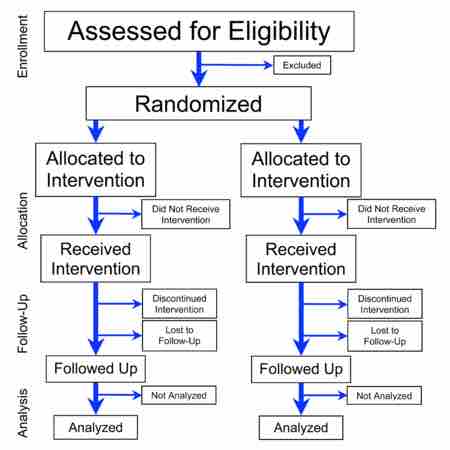The Importance of Evaluation
Assessing the effectiveness of therapeutic interventions is important for determining which therapies are the most beneficial, and for which types of disorders and/or individuals. Researchers who assess therapy are interested in areas such as whether or not counseling is effective, under what conditions it is effective, and what outcomes are considered effective—such as symptom reduction, behavior change, or quality-of-life improvement.
Variables That Influence Treatment
Topics commonly explored in studies of counseling processes and outcomes include therapist variables, client variables, the counseling or therapeutic relationship, cultural variables, process and outcome measurement, mechanisms of change, and process and outcome research methods.
Therapist Variables
Therapist variables include the characteristics of the therapist, the techniques of the therapist, therapist behavior, theoretical orientation, and training. The characteristics of the therapist can include the therapist's gender, race, sexual orientation, culture, biases, personality, etc. The techniques of the therapist include the ways in which the therapist approaches the therapy sessions.
Client Variables
Client characteristics, such as help-seeking attitudes and attachment style, have been found to be related to seeking out counseling, expectations of counseling, and outcomes. Educating clients about expectations of counseling can improve client satisfaction and outcomes.
The Therapeutic Relationship
The therapeutic relationship is defined as the feelings and attitudes that a client and therapist have toward one another and the manner in which those feelings and attitudes are expressed. The amount of trust or distrust that a client has toward the therapist can have an impact on the outcome of therapy. The therapeutic relationship has been found to predict treatment adherence and outcomes across a range of client diagnoses and treatment settings. A positive relationship between the therapist and the client based on trust and confidence often leads to a good working alliance, in which the therapist and client can agree on tasks and goals for therapy.
Approaches to Measuring Therapeutic Outcomes
When assessing the effectiveness of therapy, researchers often rely on mixed-method designs, which means using both quantitative and qualitative designs. Unfortunately, a number of theoretical models used in therapy, such as interviews and observations, lack quantitative data to support their effectiveness and rely solely on qualitative data. Ideally, therapies should use mixed methods to provide both quantitative and qualitative data. Each type of data provides different forms of information, together providing a fuller evaluation of the therapy.
Quantitative vs. Qualitative Methods
Quantitative methods include randomly controlled clinical trials, correlational studies over the course of counseling, and laboratory studies about specific counseling processes and outcome variables. One way of gathering quantitative data is through the use of inventories. For example, the Outcome Questionnaire-45 is a 45-item self-report measure of psychological distress; the Beck Depression Inventory specifically measures depression; and the Quality of Life Inventory is a 17-item self-report measure of life satisfaction. These types of inventories can be given at the beginning of treatment when a client enters therapy and then again at some point near the end. The differences in scores can then be examined to determine if the quality of life has improved, if the distressing symptoms have decreased, and other factors that indicate the effectiveness of the therapeutic approach.
Qualitative methods may involve conducting, transcribing, and coding interviews; transcribing and/or coding therapy sessions; analyzing single counseling sessions or counseling cases; or using observations made and reported by the therapist. Qualitative data can provide subjective information that cannot be measured or effectively captured by quantitative methods. Many psychotherapists believe that the nuances of psychotherapy cannot be captured by quantitative, questionnaire-style observation, and prefer to rely on their own qualitative clinical experiences and conceptual arguments to support the type of treatment they practice.
Randomized Controlled Trial
A randomized controlled trial (RCT) is a type of scientific (often medical) experiment, where the people being studied are randomly allocated to one or another of the different treatments under study. Often, people will be randomly allocated to an "intervention" group (for example, those that receive the medication being studied) and a "non-intervention" group (those that do not receive the medication, or receive a placebo instead). The RCT is often considered the gold standard for a clinical trial. RCTs are often used to test the efficacy or effectiveness of various types of medical intervention and may provide information about adverse effects, such as drug reactions. Random assignment of intervention is done after subjects have been assessed for eligibility and recruited, but before the intervention to be studied begins.

Flowchart of a randomized controlled trial
In a randomized controlled trial, people are randomly assigned to different groups that are receiving different treatment or no treatment at all, in order to study the effects of various treatment interventions.
Meta-Analyses
A meta-analysis comprises statistical methods for contrasting and combining results from different treatment-focused studies in the hope of identifying patterns among study results, sources of disagreement among those results, or other interesting relationships that may come to light in the context of multiple studies. Meta-analysis can be thought of as "conducting research about previous research" in order to gain a better understanding of the effectiveness of different therapeutic approaches. Many meta-analyses have been used to explore the effectiveness of psychotherapy. For example, one large-scale study that examined 16 meta-analyses of cognitive behavioral therapy (CBT) reported that it was as effective as, or more effective than, other therapies in treating post-traumatic stress disorder (PTSD), generalized anxiety disorder, depression, and social phobia (Butlera, Chapmanb, Formanc, & Becka, 2006). Another meta-analysis found that psychodynamic therapy was also as effective at treating these types of psychological issues as CBT (Shedler, 2010).